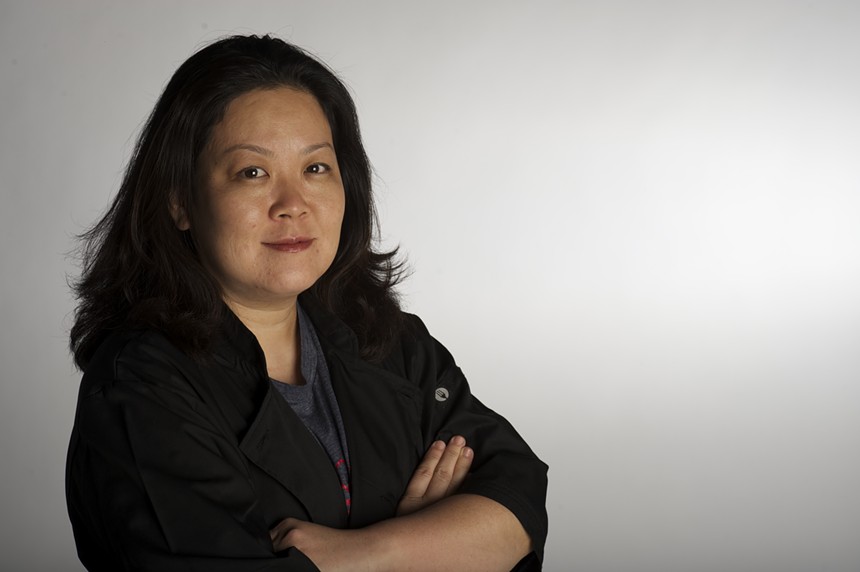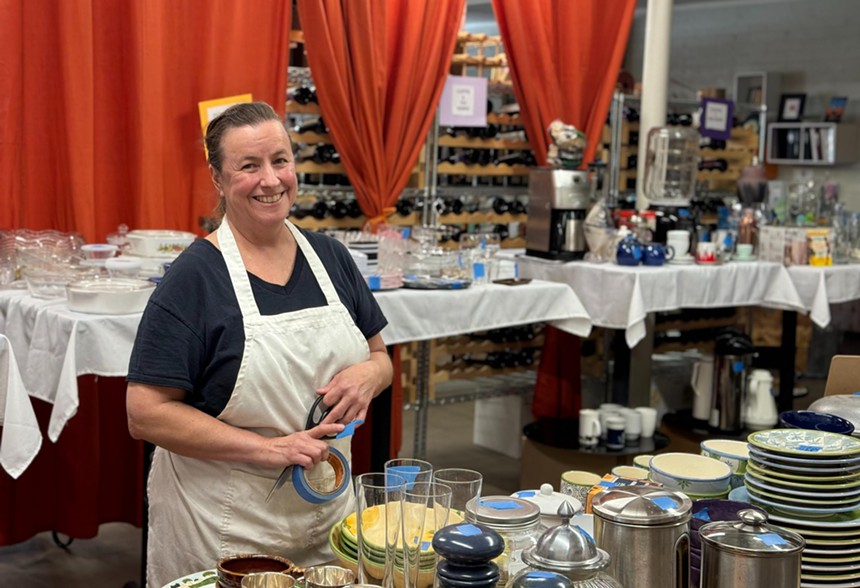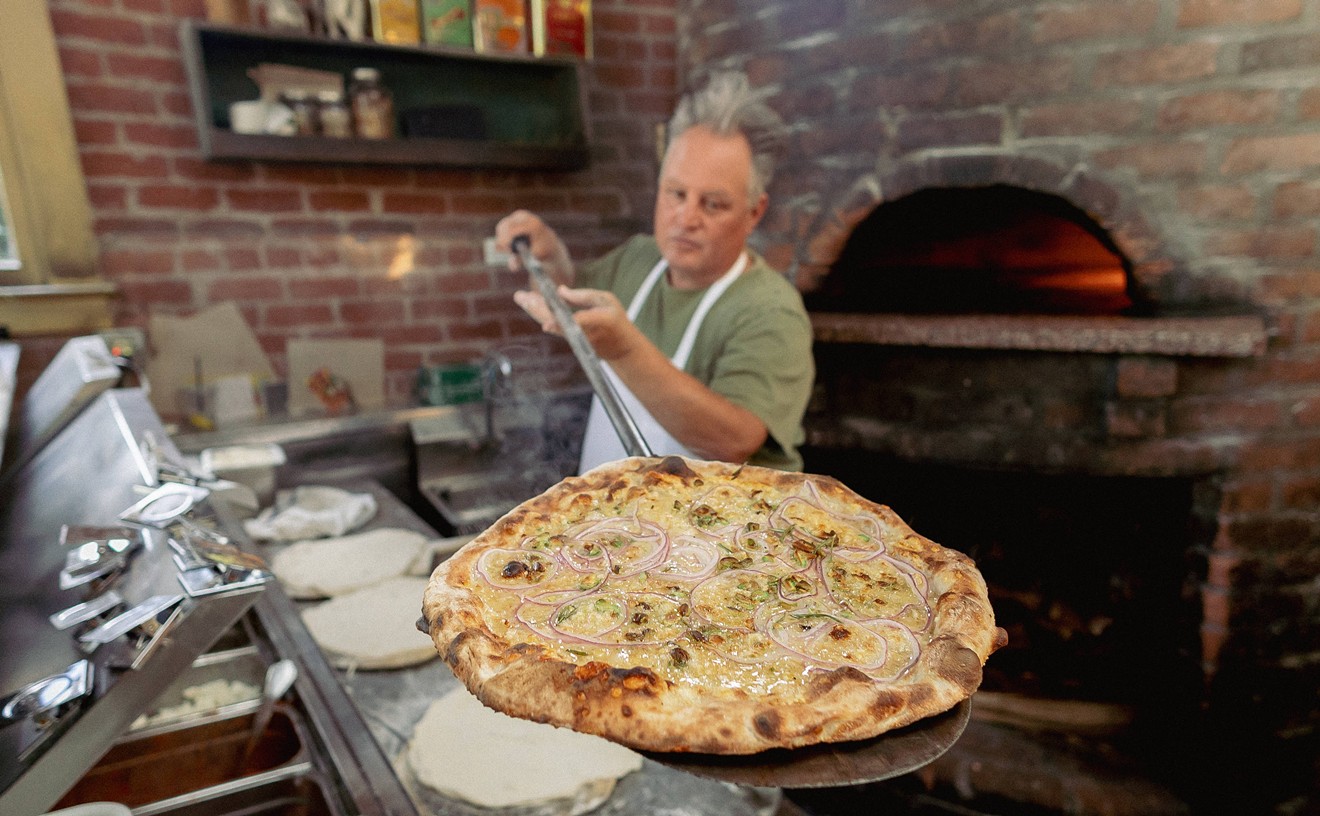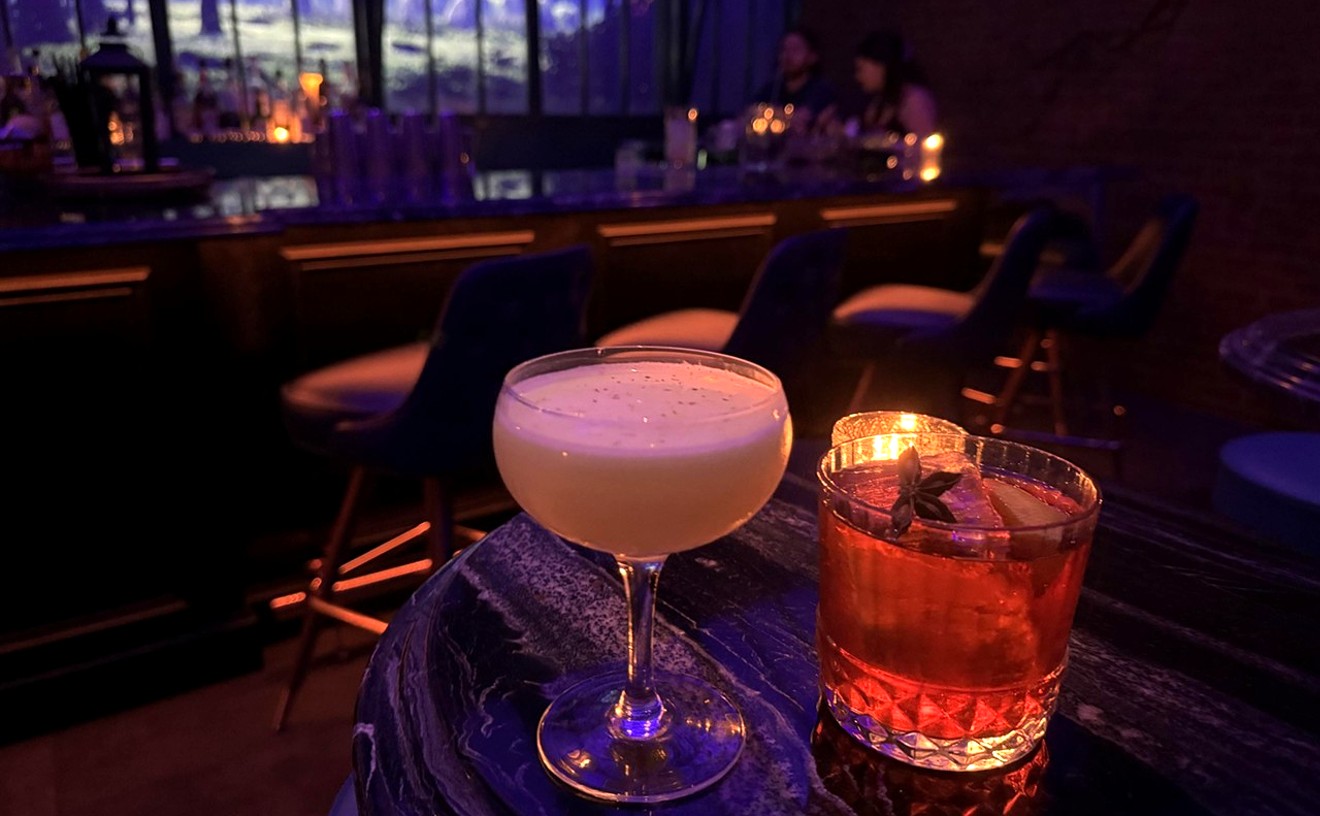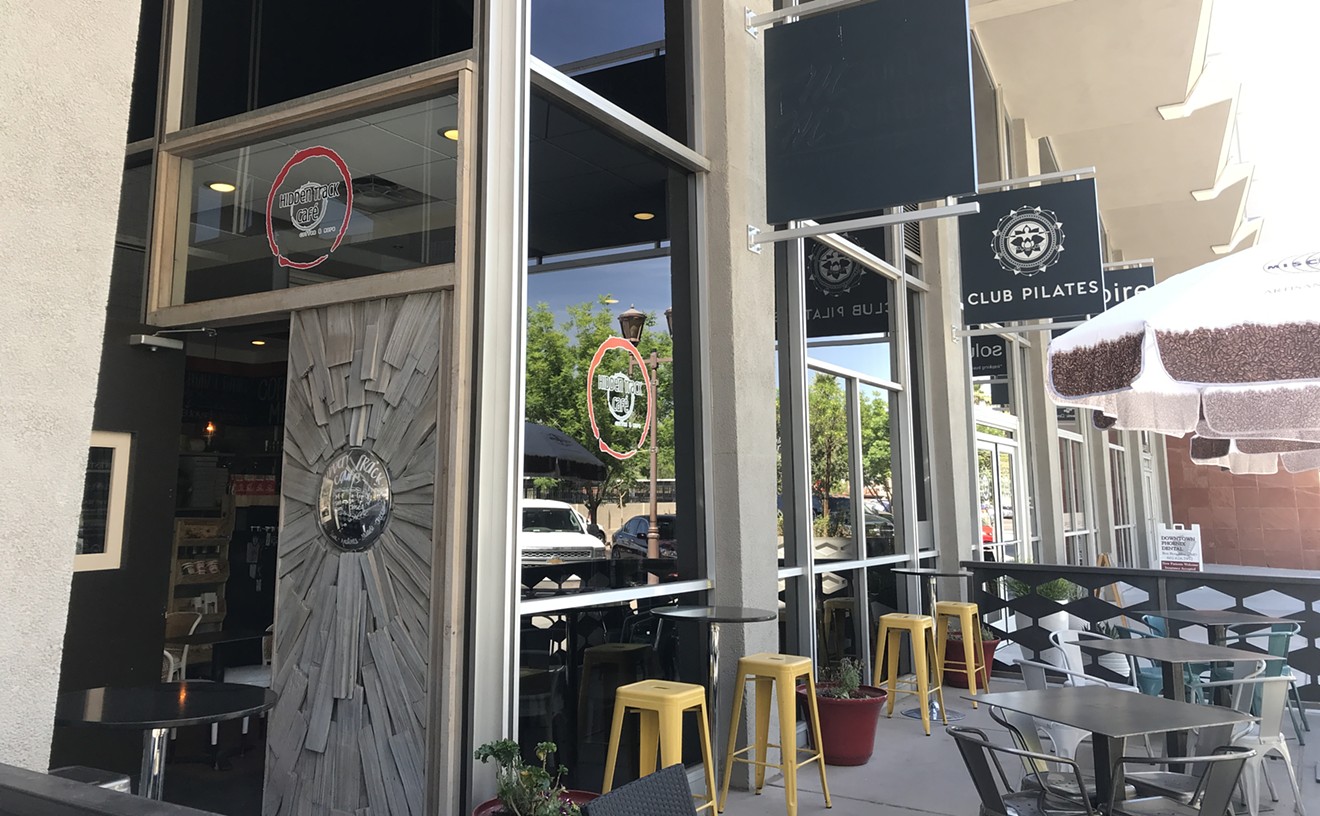That’s the premise of "The Bear," the Hulu series that has captured awards spanning writing, directing and acting. It’s become a darling of the streaming service with audiences anxiously awaiting its third season, which premieres on Wednesday evening. All of the episodes will drop at once, making it the perfect binge-watch. And, yes, a fourth season is in the works.
In addition to the obvious clash of haute cuisine versus hole-in-the-wall comfort food, protagonist chef Carmen “Carmy” Berzatto is plunged into a sea of debt, stifled by a dilapidated kitchen, stuck with a ragtag crew and forced to battle his inner demons.
Beloved real-life Chicago sandwich shop Mr. Beef stands in as the family restaurant that Berzatto, played by Jeremy Allen White, begrudgingly takes over. The second season ends with the restaurant’s transformation into a fine dining spot rebranded as The Bear.
It’s entertainment for sure. But the show revolves around a real industry that hundreds of Arizona chefs live and breathe. So, how close does it come to real life?
“It’s more realistic than a lot of other chef shows, definitely than the competitions,” says Justin Beckett, chef and co-owner of Beckett’s Table and a "Chopped" alum. “It’s a good drama that stays true to a lot of nuances and I think that's why a lot of chefs care for it.”
It’s fiction, yet there’s enough meat in this story of a gritty beef sandwich shop’s evolution into something more.
“I feel like it’s pretty fair,” says Lori Hashimoto, chef and owner of Hana Japanese Eatery and 2022 James Beard semifinalist. “We can’t forget that it’s television, but there are bits and pieces that shine pretty clearly that, apparently, everyone wants to know about. As if you could be a fly on the wall.”
Dom Ruggiero, chef and owner of Hush Public House, Fire at Will and Bar Cena, is constantly asked by customers if he has seen the show.
“They didn't realize how hectic and crazy it can get,” Ruggiero says. “They ask, ‘Is that real?’”

The cast of "The Bear" performs a somewhat accurate depiction of what it's like to run a restaurant.
What ‘The Bear’ gets right and wrong
Chefs drinking water out of plastic to-go deli cups and clashes between new and longtime employees are among the details that Anhelo chef and owner Ivan Jacobo appreciates. “When you hire a guy with no fine dining experience, and then one with fine dining experience, it’s funny because one thinks they know more than the other," Jacobo says. "I’ve seen those arguments.”
Ruggiero says the show was spot on with its depiction of what’s needed to open a restaurant, including the emotions connected with inspections and efforts when developing menus.
“It definitely rings a little true to me,” says Ruggiero, whose Italian beef dish at Hush is inspired by the former Taste of Chicago restaurant where he worked in his early years.
The depiction of the frenetic pace of a kitchen running at full speed is also accurate, Hashimoto says.
“There's unsaid stress there and overwhelming pressure to perform," she says.
For The Larder & The Delta chef and owner Stephen Jones, who was raised in Chicago and worked in restaurants in the city, the show brought back memories of places and people he knows well. In the second season, Berzatto’s chef de cuisine Sydney visits recognizable spots to reset her palate after exhaustive recipe trials.
This includes Avec, the famed Mediterranean-inspired restaurant where her character gets advice from respected restaurateur Donnie Madia, and the multi-Michelin star restaurant Ever, where Berzatto’s cousin Richie gets a crash course in ultimate customer service.
“They’ve definitely done their research. It told the story of Chicago, this blue-collar working town that has so many different elements to its dining and cuisine,” Jones says.
On the flip side, Berzatto getting accidentally locked in the walk-in fridge in the second season’s final episode drew reactions ranging from laughter to irritation. All walk-ins have a safety mechanism that allows the door to be opened from the inside, the chefs explained.
Our local chefs also think the show's exacerbated fights and meltdown scenes are over the top.
“Unfortunately, our profession has a back story that’s not good as far as the culture," Jones says, "but they take that to another level."
Consensus is split on whether calling everyone in the kitchen “chef” is legit.
“I thought they overdid it,” Ruggiero says. “I was brought up where that term is reserved for the actual chef or sous chef. You’ve got to earn that title.”
Hashimoto’s stance: “I call people what they want to be called. Whether it’s ‘chef,’ or their first name, it’s about respecting their wishes.”
For Jones, the reference is a reminder of the atmosphere he expects in the kitchen.
“When we communicate by calling each other ‘chef,' (it indicates) we are in a professional environment,” Jones says. “If we want people to take us seriously, we have to take ourselves seriously.”
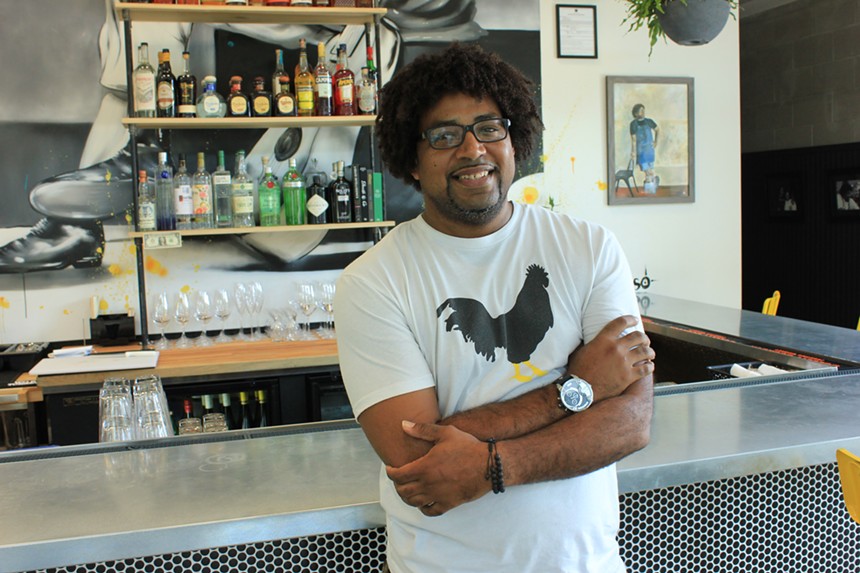
Stephen Jones is the owner and chef behind The Larder & the Delta, a restaurant currently on a hiatus with big plans for the future.
Chris Malloy
What gets personal
Like Sydney, pastry chef Tracy Dempsey has been the new kid in the kitchen who gets ostracized and looked at with suspicion. Once, she hid in the freezer and cried under the guise of needing to inventory truffles she would later dip into chocolate. “You feel like an outcast until you prove yourself worthy,” says Dempsey, of Tracy Dempsey Originals and ODV Wines. “There’s no place for slackers.”
Chefs have fired people on the spot for inappropriate behavior. Jones has walked into sexual encounters in storage areas and hazing of employees. When Jacobo opened his previous restaurant, he caught most of his team smoking marijuana at an event in plain view of guests. However, he waited until after service to let them go.
“It was really rough because I care about every single staff member I’ve had,” Jacobo says. “Most of them were my friends. I found out that’s why a lot of people don’t open a restaurant with friends.”
Hashimoto connects with the show's restaurant remodel, recalling moving into Hana’s space 17 years ago, tearing down walls, examining the need for new flooring and thinking about the costs of it all.
The family business aspect also spoke to her. Hashimoto has navigated disagreements and struggles with family members who are and have been part of Hana.
“That’s the height of the negatives about this business,” Hashimoto says. “But, working with family is also what makes it the best thing. To say it didn’t touch my heart, no, it did.”
Everybody loves Marcus
The storyline of the pastry chef who stages in Copenhagen at a multiple-Michelin star restaurant meant to resemble Noma, also touched chefs’ hearts. Jacobo says he appreciated the depiction of "how you can influence somebody by showing them, not just explaining.”
The Phoenix chef took his staff to The French Laundry, renowned chef Thomas Keller’s three Michelin-star fine dining restaurant in Napa, last summer. Jacobo did this as a thank you for their hard work, but it also motivated everyone to kick up their performance when they returned.
On the show, Marcus asks his colleagues to taste his doughnut recipes and chocolate cake. Dempsey has been there, she says, redoing recipes and going back to the drawing board based on feedback from colleagues.
Dempsey acknowledged that while dessert is often an afterthought, restaurants with a polished menu understand the importance of having a sweet offering that is on par with starters and entrees. This explains why Berzatto invests in his pastry chef, despite being financially strapped.
“There has to be a connection from start to finish from executive chef to pastry chef to create a cohesive experience and I think that's what they were shooting for. I liked that,” Dempsey says.
Chefs also liked how Tina, the restaurant’s longest-tenured employee, was sent to culinary school to improve her skills. Hashimoto thought it demonstrated a kindness in assuring the veteran worker that, even in the newly revamped restaurant, she had value.
“To give someone who’s been there for so long that opportunity, it was emotional for me,” Hashimoto says. After a pause she adds, “It was heartwarming.”
No monsters, just tickets
Regardless of how they felt about the details, every chef agreed on how scarring the scenes of the kitchen’s unrelenting ticket printer were and the distinct sound it makes when the paper goes through the machine, indicating a new food order.“If you talk to chefs, their nightmares don’t involve monsters. It’s that machine and the noise it makes,” Beckett says. “You hear it in your sleep, when you’re on vacation and in your brain when it’s quiet.”
Jones admitted he heard the “ding” and clicking of the printer while having dinner on a recent family vacation.
“That’s the PTSD for most chefs,” Jones says. “There’s the initial click when it starts. Then it goes, like a roller coaster up the steep hill. Then it gets to the top and then it comes down with all the tickets falling to the floor… that’s when you’re in deep.”
However, when the staff deals with the never-ending barrage, completes all the orders and gets caught up, that’s a reminder of the camaraderie under pressure.
“Those are the inspirational moments, when you can come together as a team and make it happen,” Beckett says.

Beckett’s Table chef and co-owner Justin Beckett is a big fan of 'The Bear.' “It’s more realistic than a lot of other chef shows, definitely than the competitions," says Beckett, who was also a contestant on "Chopped."
Joanie Simon
Old versus new school kitchen culture
The show's outbursts that border on — and sometimes cross — the line of abuse coupled with the softer moments among staff reflect the battle between the old and new ways of running a kitchen, the chefs say.“Do I get the best out of this person if I snap? Or should I change how I talk to this individual and how I approach this individual?” Jones asks. “That’s the culture now.”
Jones says the show demonstrates the chef's attempt to balance not only the dueling philosophies, but also a business where the finished product is picturesque but the work behind it is not.
“Food is sexy, glamorous. But the part you don’t see is the battle. With Carmy, they show the job that no one talks about that is not pretty, not sexy,” Jones says.
The work required to craft recipes, open a restaurant and cook the food all take their toll and chefs easily reach their limits and lose patience. That’s when an effort is required to make a choice that will set the tone for everyone else in the kitchen.
Expectations for Season Three
Berzatto's implementation of a culture shift in his kitchen and personal life are high on chef's lists of what they hope the new season will examine. Most want a deeper dive into new cooking techniques, more of Chicago’s restaurant scene and collaborations between Berzatto and his chef de cuisine Sydney. The second season's hint at a hunt for a Michelin star is backed by early previews of Season Three. Ruggiero wants to see how deep the team gets into that quest while Jones will be looking for how Berzatto deals with the restaurant’s new look and success.
Jacobo, who started out in the pop-up world before opening his fine dining restaurant Anhelo, shares this interest. He has a plaque that reads “Every Second Counts” — a key phrase introduced in Season Two that pulls the series together — above the exit door in the kitchen. It was a birthday gift from his brother-in-law.
Regardless of how many details are on point or way off, everyone’s rooting for the eternally angst-ridden Berzatto.
“I would love to see the restaurant do well, get recognition and for him to find happiness and peace. But I don’t know if that’s going to be possible,” Beckett says. “I love a happy ending.”


